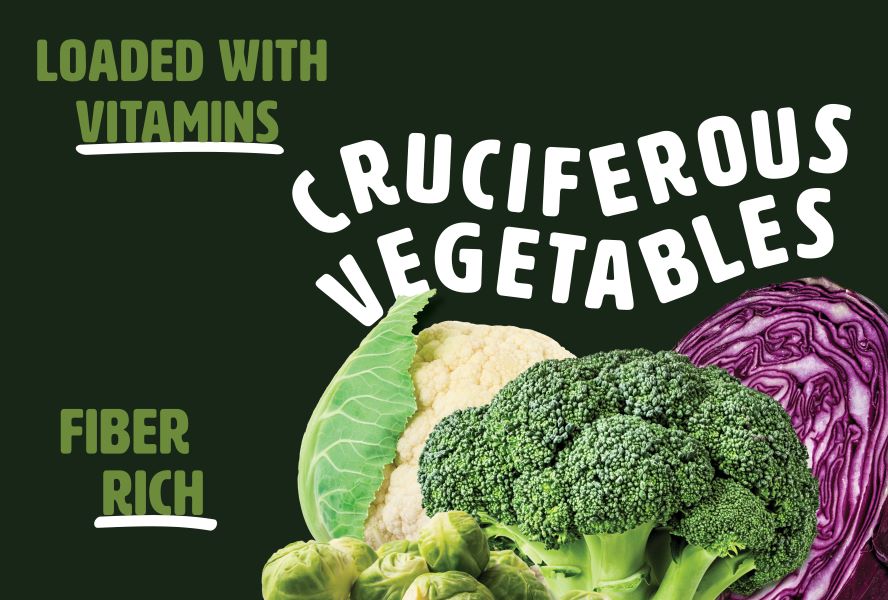
Did you know?
- Cruciferous Vegetables:
- include broccoli, cauliflower, cabbage, Brussels sprouts, bok choy, kale, horseradish and wasabi.
- combine a variety of nutrients including beta-carotene, fiber, Vitamin C, calcium, iron and folate.
- contain a group of substances known as glucosinolates, which are responsible for the pungent aroma and bitter flavor of cruciferous vegetables.
- get their name from their four-petal flowers, which look like a crucifer or cross.
- Cauliflower is an unassuming cruciferous vegetable that provides an entire day’s Vitamin C in just one cup!
- Cabbage is one of the oldest vegetables. There are at least 100 types, but green, red and savoy varieties are the most popular in the United States.
- To keep your cruciferous vegetables flavorful:
- Eat them soon after purchasing
- Cook briefly, just until tender-crisp
- Do not keep leftovers more than 1 day
Try some of our favorite recipes featuring cruciferous vegetables:
Balsamic Roasted Pumpkin and Brussels Sprouts
Roasted pumpkin and Brussels Sprouts seasoned with balsamic vinegar, garlic and thyme
Check out this recipe


Garlic Lemon Garbanzo Bean Pasta with Broccoli and Peanuts
Check out this recipe

Sriracha-Buffalo Cauliflower Bites
This recipe for spicy Buffalo cauliflower bites is a great vegetarian alternative to Buffalo wings. Roasted cauliflower stands in for chicken and provides more fiber and fewer calories. Serve this easy appetizer with carrot sticks, celery and your favorite ranch or blue cheese dressing.
Check out this recipe



